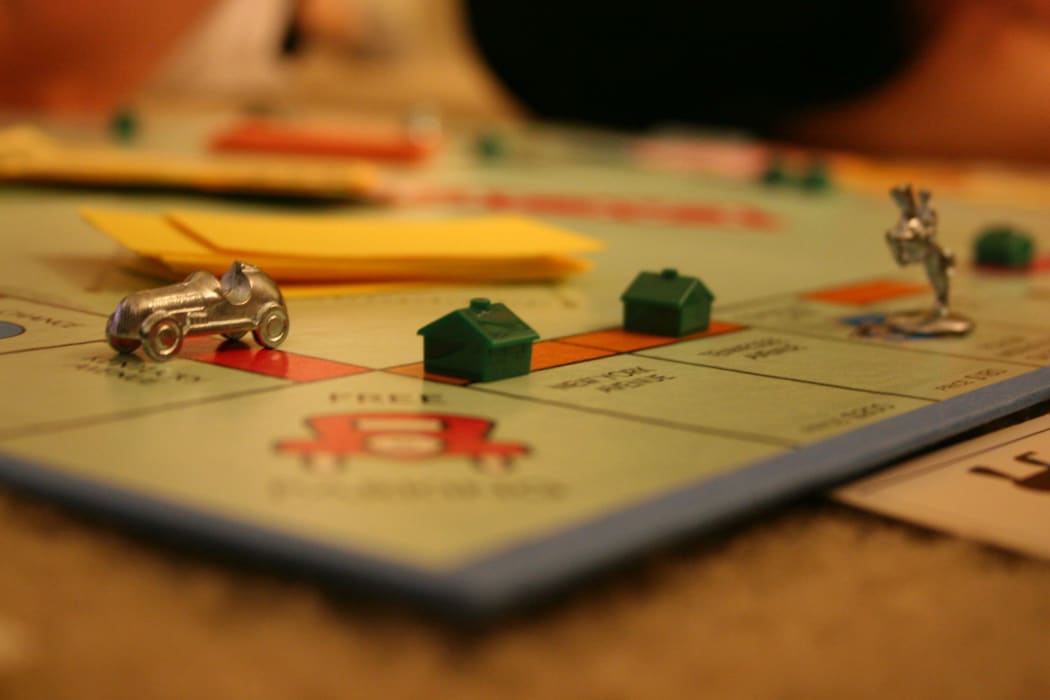Do you like winning – no matter how insignificant the opposition and no matter how simple the game?
Do you prefer winning to getting on with your friends, siblings, parents or children?

Photo: Flickr / sling@flickr
Science journalist Tom Whipple has developed – with the advice of experts – some sure-fire strategies in his book How to Win Games and Beat People.
“One of the great joys of beating people is also pissing them off in the process” Tom says.
He argues that rather than being a poor loser, he’s a good winner.
“The ‘poor loser’ is the first refuge of the person who doesn’t win terribly much and is bitter about it.”
This could be genetic, Tom says. One side of his family is extremely competitive.

Tom Whipple Photo: Supplied
“One of my earliest memories is my Uncle Terry playing a board game against me at Christmas. He won. And he didn’t win graciously, he won as Uncle Terry always does... He had the right to jump up on the sofa and say ‘I win, you lose, I win, you lose’ because he’d won and I’d lost.”
Tom says he only included in the book the games he thought he could say something useful about.
“There’s not a lot you can say about Snakes and Ladders.”
A lot of games involve mathematical or scientific problems, such as Monopoly; which Tom describes as “a badly designed game of skill".
“The winner is determined in the first ten minutes and then you have to play for five hours even though you know you’re going to win or lose.”
But he does have some tips.
The orange properties – Bow Street, Vine Street and Marlborough Street – are the most commonly landed-on and provide the most consistent revenue. These are the best purchases for “seriously financially embarrassing your opposition” says Tom.
For some surprising insights into humanity, he recommends the game Paper Scissors Rock (aka those words in every other possible order).
Any rational player should play randomly, Tom says, but the problem is humans aren’t rational. A paper by Chinese scientist found that people often go randomly the first time around, “but we can’t help but be stupid after that”.
“Let’s say I was playing against you and you did ‘paper’ and I did ‘rock’, you’d think unconsciously ‘Paper’ has done well for me. 'Paper’ is nice and strong. I’ll stick with 'paper’. And then I’d think unconsciously ‘God, I’ve just lost on 'rock'. I’ve gotta go to something stronger than 'rock.’ And I’d end up going to 'paper'.”
If you keep in mind the loser will try to go with something new (and hopefully more powerful) and the winner will repeat their winning move, you’ll have an advantage over your opponent.
“If you can train yourself to think ‘I’ve just lost on 'paper' - that means there’s a greater than a third chance he’s going to stick on 'paper' so I’m going to use 'scissors' this time.’
Tom says he included noughts and crosses (or tic-tac-toe) in the book after finding out an American chicken had been trained to play it.
“I think that tells you all you need to know about the intellectual level.”
At the other end of the spectrum, chess is not covered.
“There’s very little useful I could say about chess in a thousand words that hasn’t been said in far longer books by far cleverer people... I find it astonishing that human beings thousands of years ago designed a game that has more positions than there are atoms in the universe.”

